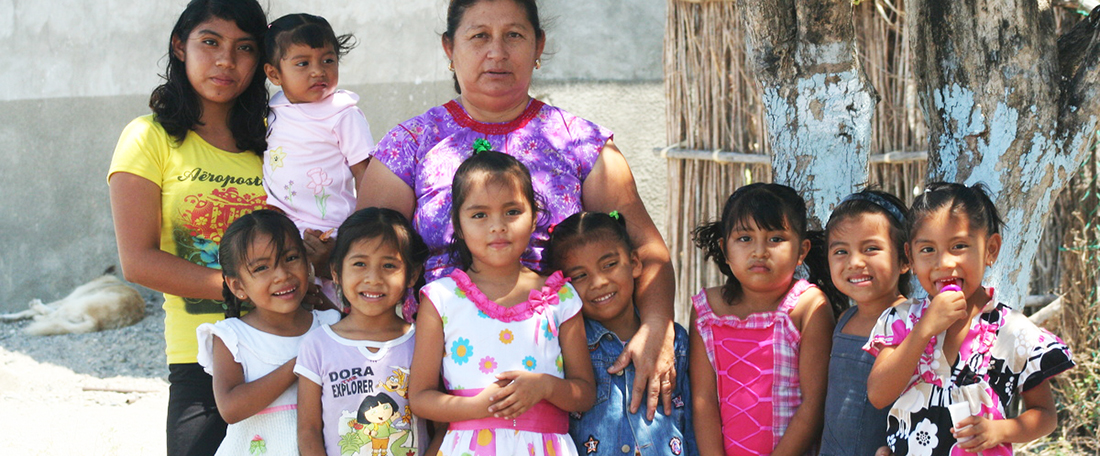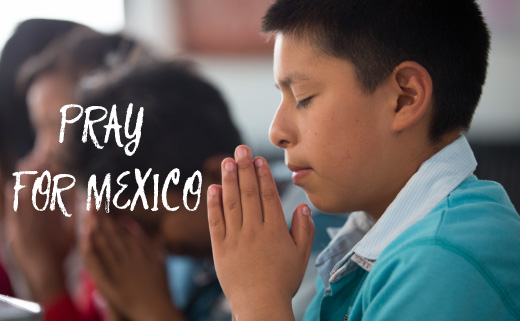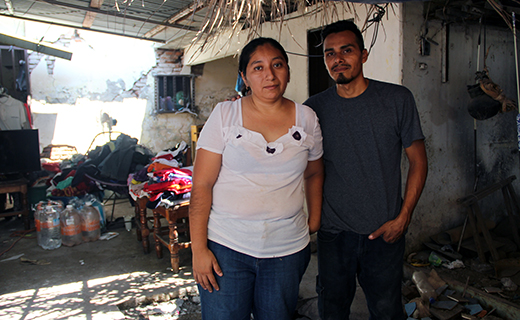Mexico
Capital City: Mexico City
Population: 121.73 million
Life expectancy: male 72.88 years, female 78.55 years
Population with improved drinking water: urban 97.2%, rural 92.1%
Adult literacy rate: male 96.2%, female 94.2%
Infant mortality rate: 12.23/1,000
Under 5 mortality rate: 15/1,000
Religion: Roman Catholic 82.7%, Pentecostal 1.6%, Jehovah's Witnesses 1.4%, other Evangelical Churches 5%, other 1.9%, none 4.7%, unspecified 2.7% (2010 est.)
Percentage living on less than $1.90 a day: 2.68%
A little bit of history
Mexico is a nation with history steeped in Amerindian civilizations including the Olmec, Toltec, Teotihuacan, Zapotec, Maya, and Aztec. The country was conquered and colonised by the Spanish in the early 16th century before achieving independence as a result of the Mexican Revolution in 1910.
The Institutional Revolutionary Party held power for much of the 20th century, but violent outbreaks have been common across the country particularly from those fighting for the rights of indigenous communities. In the last decade governments have placed increasing importance on fighting the drugs trade, which is responsible for thousands of drug-related homicides each year.
How the country makes a living
Mexico's $1.3 trillion economy has become increasingly based on manufacturing in the 21 years since the North American Free Trade Agreement (NAFTA) began. Although economic growth over the last decade has made Mexico a middle-income country, distribution of wealth remains unequal with many indigenous communities still living in desperate poverty in the Southern States.
Challenges faced by the children
Despite being classed as a middle-income country, it is estimated that 24 million Mexicans are living in extreme poverty across the country. Nearly 14% of Mexican children under five have stunted growth and within indigenous communities this figure reaches 33%. Provision and care for children varies greatly throughout this huge country. As the economy shifts from agriculture to industry, many are flooding from the country to the city in search of work. The reality is harsh, as slums continue to grow and pressure on already stretched resources increases.
Compassion in Mexico
Compassion's work in Mexico began in 1979. There are currently more than 43,500 children being supported by 205 of our church partners.
What sponsored children learn in mexico
In Mexico, children typically attend their Compassion projects after school and on Saturdays. During a typical project day, sponsored children will take part in activities such as ...
- Prayer and devotional time.
- Spiritual lessons. Children sing songs and learn Bible stories.
- Break time. Children can play in a safe environment and develop friendships.
- Social lessons. From conflict resolution to developing healthy self-esteem, children who often come from challenging home environments are taught social and personal skills.
- Lunch and social time. When the children come to the project for more than four hours, they receive a full meal. When they come to the project for less than four hours or for an extracurricular activity, they receive a snack. A meal consists of a main dish which is meat, chicken or soy cooked with vegetables, fruit and fresh water. If they are served a morning meal, it will generally be ham, eggs and fried beans. A snack is usually fruit or a nutritious dessert.
- Health lessons. Children are taught practical health and hygiene tips.
- Letter writing and career planning. Older children work with project staff to identify their strengths and interests, setting realistic goals for their future.
Additional activities offered by projects in Mexico:
- Compassion Mexico currently offers leadership development skills to help young people mature and develop.
- Vocational training activities include carpentry, painting, cooking, computer classes, English, hammock making, silk screening, embroidery, hair styling and fish farming.
- Parents are typically involved in activities such as parenting classes, income-generating activities, evangelistic campaigns, discipleship activities and health activities.





